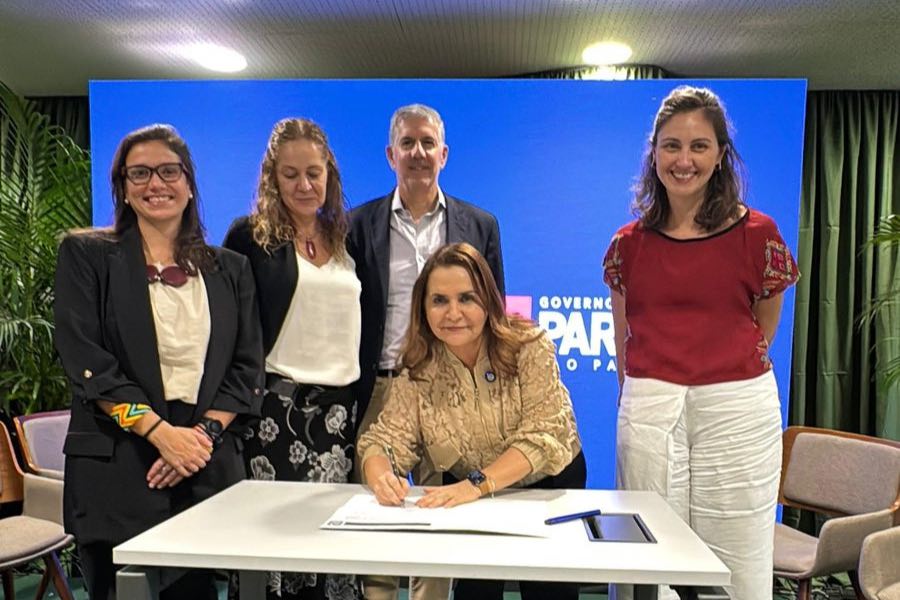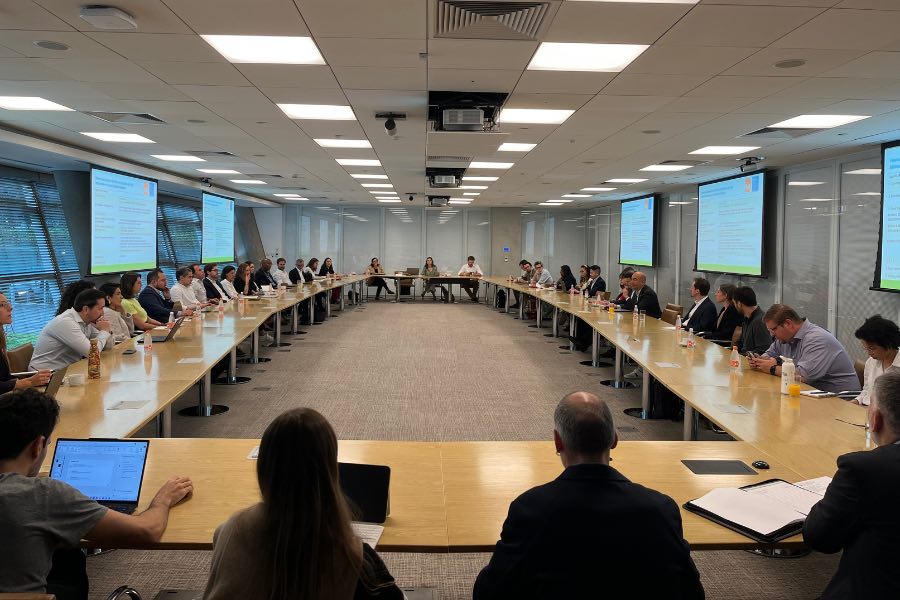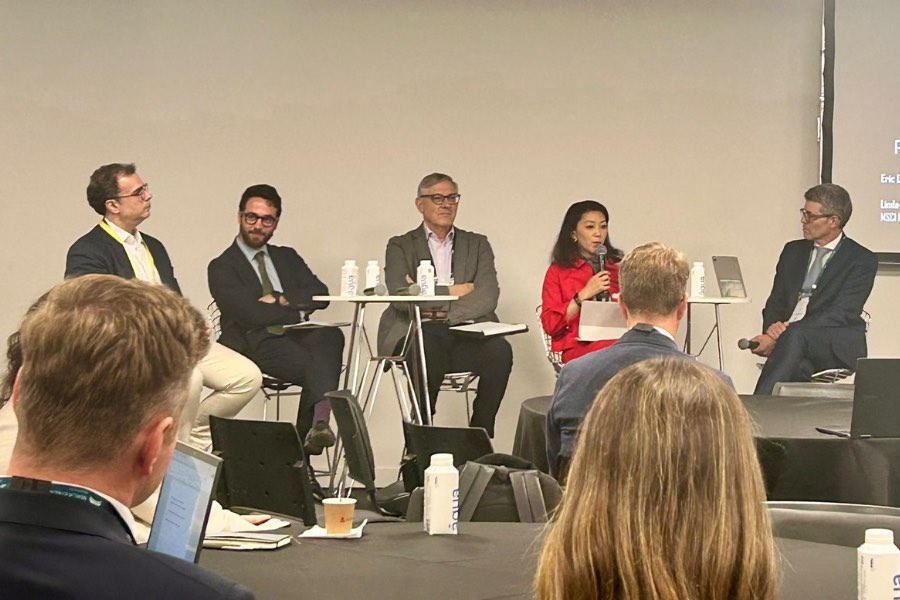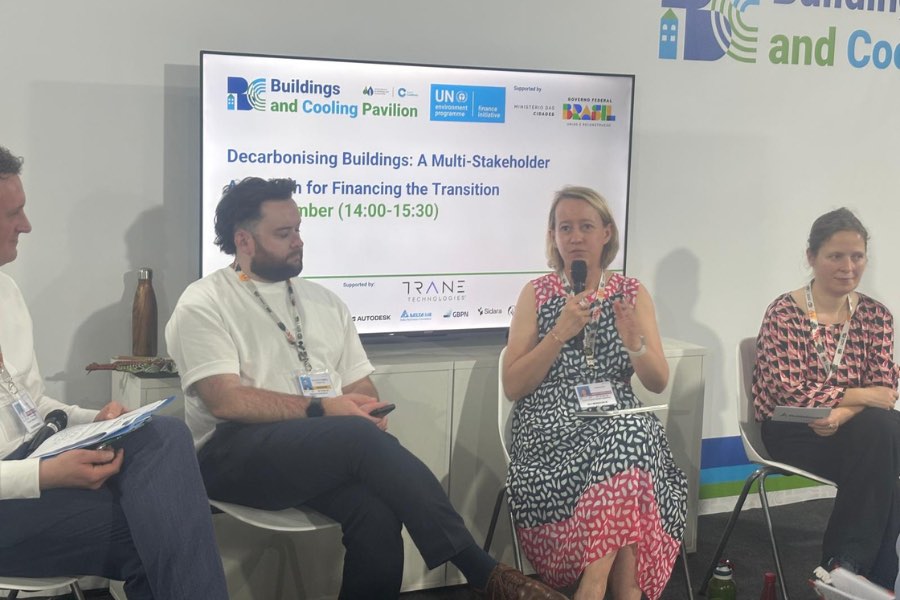In Belém at COP30 on November 11 and 14, UNEP FI welcomed two new banking members–Banpará and Banco do Noreste—as signatories to the UN Principles for Responsible Banking (PRB). This moment represented the expansion of PRB’s growing responsible banking community in Latin America and is a testament to the regional leadership of Brazil’s banking sector in advancing climate and nature goals.
Pictured above: PRB signing ceremony for newest signatories Banpará and Banco do Noreste
PRB members took part in great numbers in Belém to emphasize progress on decarbonization in real estate and agriculture, transition planning, and resilience. ING, Itaú, Bradesco, FAB, Standard Chartered, Caixabank, Credit Agricole, BBVA, MUFG, and many other banks showcased their approaches and demonstrated leadership on the global stage. In support of the Brazil Presidency’s focus on adaptation at this COP, UNEP FI highlighted the PRB Practical Guidance on Implementing Adaptation and Resilience for other interested financial institutions.
These engagements followed PRI In Person and the Climate Action summits the week prior in São Paulo, which convened the finance sector around COP30 goals. On November 3, Itaú and UNEP FI hosted a roundtable -including asset owners, commercial banks, banking associations, policymakers and companies- to discuss the critical role of finance in advancing sustainable food systems.
At PRI In Person, UNEP FI and MSCI Institute joined leaders from Harvard, Amundi, and Itaú to explore how banks embedding sustainability outperform peers—paying less for capital, gaining resilience, and attracting investor confidence. For more, access UNEP FI’s Principles for Responsible Banking Third Biennial Progress Report and/or review panel session highlights in the short article “How are banks translating sustainability commitments into measurable financial and operational advantages.” Additional events on this topic to come in Q1 2026.
On 11 November, UNEP FI, ING and the Global Alliance for Buildings and Construction (GlobalABC) hosted a session on how financial institutions and policymakers can drive buildings decarbonisation, including ING and FAB as panellists. The discussion highlighted real-world collaborations across government, finance, industry and homeowners and identified key success factors for scaling up finance for green buildings.
Pictured above (L-R): Roundtable on “Finance Leadership for the Future of Agriculture and Food,” hosted by UNEP FI and Itaú , UNEP FI’ panel event on “ESG Leadership and Financial Performance: What Investors Can Learn from Responsible Banking.” Panel event on “Decarbonising Buildings: A Multi-Stakeholder Approach for Financing the Transition.”
On 18 November, Crédit Agricole and Rabobank will participate in FAO’s high-level COP30 event: “Unlocking Climate Finance for Agrifood Transformation and Climate Action.” The session will explore practical solutions and innovative financing approaches to advance sustainable agrifood system transformation.
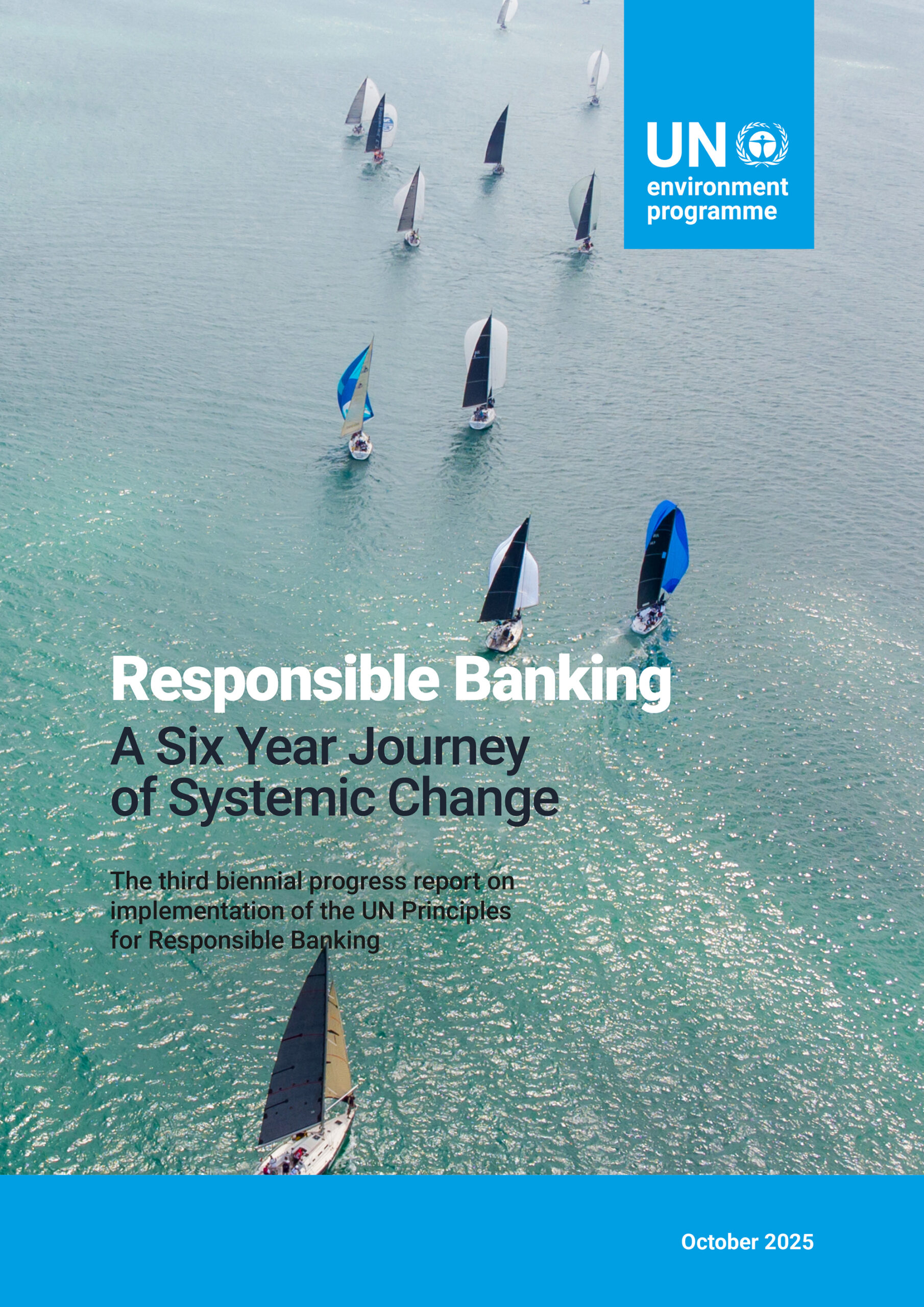
Launched on 15 October, the PRB’s third biennial report showcases a sector-wide shift in banking practices. The report provides bespoke data and analysis demonstrating how PRB signatories are increasingly moving from commitment to action, embedding sustainability into core business strategies, governance, and client relationships to manage risk, meet stakeholder expectations and remain competitive in an evolving economy.
Highlights include:
- Banks representing circa 50% of global banking assets embedding sustainability into strategy, governance and client relationships
- MSCI analysis shows PRB banks paid one percentage point less, on average, for equity and debt capital
- Growing regulatory momentum for market practices pioneered by UNEP FI
Download and explore this rich resource here.




